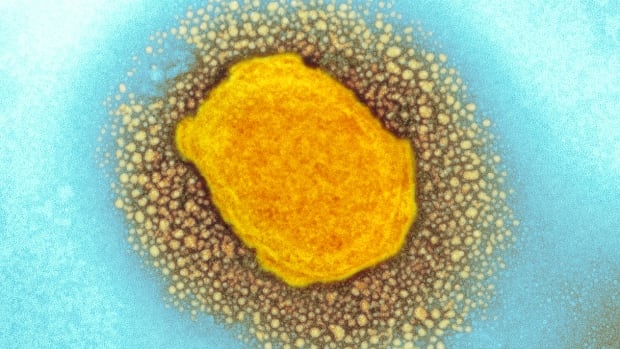
Why leaving monkeypox unchecked in Canada could put more people at risk
CBC
This is an excerpt from Second Opinion, a weekly roundup of health and medical science news. If you haven't subscribed yet, you can do that by clicking here.
Canada needs to act fast to get the monkeypox outbreak under control by scaling up testing, identifying cases quickly and solving key unanswered questions about the origin and ongoing spread of the virus before it takes root here and puts our most vulnerable at risk, public health experts say.
There have been 112 confirmed cases in Canada to date — one in British Columbia, four in Alberta, nine in Ontario and 98 in Quebec — but officials said Friday they are expecting that number to rise in the days and weeks ahead as more results come in.
"Our primary goal is to contain the outbreak," Canada's chief public health officer, Dr. Theresa Tam, said during a press conference on Friday.
"This means rapidly stopping chains of transmission to prevent the establishment of monkeypox in Canada and protect public health and health care in Canada."
Tam said all of the patients are males between the ages of 20 and 63, and the majority of them had sexual contact with other men, but she stressed that the infection can spread to anyone who is exposed through close contact with an infected person or contaminated objects.
"We've got to try and get the current outbreak of monkeypox contained," said Jason Kindrachuk, assistant professor of viral pathogenesis at the University of Manitoba in Winnipeg and Canada Research Chair of emerging viruses who has studied monkeypox.
"Especially when we're still dealing with a pandemic. Viruses and infectious diseases don't just stop when a new one emerges; they become cumulative."
But due to limited surveillance in the general community and the time it takes to diagnose and send samples to the National Microbiology Laboratory in Winnipeg for confirmation, Canada is likely weeks behind in identifying the true scope of monkeypox spread.
The World Health Organization (WHO) said this week that there are more than 1,000 confirmed monkeypox cases in 29 non-endemic countries around the world, but some researchers estimate the true number is more than 1,500 and growing rapidly.
"The sudden and unexpected appearance of monkeypox in several non-endemic countries suggests that there might have been undetected transmission for some time. How long? We don't know," WHO director general Tedros Adhanom Ghebreyesus said this week. "The risk of monkeypox becoming established in non-endemic countries is real."
Tedros said that while health officials are particularly concerned about the threat monkeypox poses to vulnerable groups such as children and pregnant women, countries such as Canada can step up before the virus becomes established on our soil.
"That scenario can be prevented," he said. "WHO urges affected countries to make every effort to identify all cases and contacts to control this outbreak and prevent onward spread."
Dr. Zain Chagla, an infectious diseases physician at St. Joseph's Healthcare Hamilton and an associate professor of medicine at McMaster University, said Canada should be trying to find as many monkeypox cases as possible — especially as cases with no known links to travel emerge.

Garden Hill Anisininew Nation leaders are calling on all levels of government to help secure hotel rooms for hundreds of wildfire evacuees as a congregate shelter in Winnipeg became crowded on Saturday and northern Manitoba wildfires threatened their homes and the health of those still waiting to get out.





















 Run 3 Space | Play Space Running Game
Run 3 Space | Play Space Running Game Traffic Jam 3D | Online Racing Game
Traffic Jam 3D | Online Racing Game Duck Hunt | Play Old Classic Game
Duck Hunt | Play Old Classic Game










